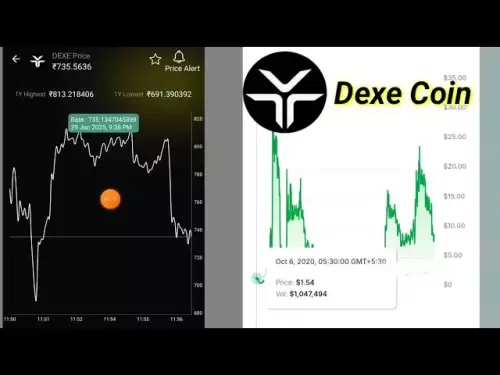 |
|
 |
|
 |
|
 |
|
 |
|
 |
|
 |
|
 |
|
 |
|
 |
|
 |
|
 |
|
 |
|
 |
|
 |
|
Cryptocurrency News Articles
Amid global major countries recognizing the digital asset industry as a future growth engine and establishing a regulatory framework, South Korea remains trapped in a regulation-centered framework. There are concerns that it is stuck in a state of policy
May 27, 2025 at 12:10 pm
As of 10:50 a.m. on the 27th, Bitcoin recorded $108371 on the virtual asset market tracking site CoinMarketCap. Bitcoin recently broke $110000 due to the recent suspension of tariff policies by the Trump administration, but has slightly fallen and is moving sideways.

Amidst major countries such as the U.S., Japan, and Singapore recognizing the digital asset industry as a future growth engine and establishing a regulatory framework accordingly, Korea remains trapped in a regulation-centered framework, raising concerns about a state of policy gaps and stagnation.
According to virtual asset market tracking site CoinMarketCap on the 27th at 10:50 a.m., Bitcoin was trading at $108,371.
Recently, Bitcoin broke through the $110,000 level as the Trump administration's suspension of tariff policies brought renewed attention to the crypto market. However, it has since pulled back slightly and is moving sideways.
Last year, the U.S. approved the Bitcoin spot ETF in January, officially recognizing the entry of the digital asset market into institutional finance. This has led to a significant inflow of traditional funds such as pension funds and institutional investors into the digital asset market.
Furthermore, since the inauguration of Donald Trump's second administration on Jan. 20, the U.S.'s pro-digital asset stance has rapidly accelerated.
Immediately after taking office, President Trump signed an executive order on the digital asset reserve in March and established a dedicated position for virtual assets in the White House, appointing David Sacks, former Chief Operating Officer of PayPal, to lead the initiative. On the 6th, the state of New Hampshire became the first in the U.S. to pass a bill allowing the state government to hold digital assets like Bitcoin as strategic reserve assets.
Japan is also driving the digital asset industry by establishing a national-level Web3 project team and reforming its digital asset taxation.
With the amendment of the Payment Services Act in June 2023, Japan has set up a regulatory framework allowing the issuance of stablecoins. The ruling Liberal Democratic Party is also proposing a tax reform plan that replaces the progressive tax rate, which was applied up to 55%, with a 20% capital gains tax for the blockchain industry regulatory environment.
Additionally, the Financial Services Agency of Japan announced that by 2026 it would recognize digital assets as independent financial products rather than mere payment methods.
Singapore is establishing itself as a virtual asset hub with a clear licensing system for digital asset businesses, tax incentives for foreign corporations, and infrastructure support. The allowance of digital asset custody by private banks and the operation of a transaction testing ground for tokenized securities (STO) have been evaluated as innovations combining the capital market and digital technology.
Hong Kong has also been busy creating a virtual asset hub at the national level, such as approving virtual asset spot ETFs by the Securities and Futures Commission (SFC) last year.
In contrast, Korea is still shadowed by regulatory ambiguity and legal uncertainty, making it virtually impossible to issue digital assets.
Despite the rising demand for crypto fundraising and the need for new assets like stablecoins, NFTs, and security tokens (STO), the existing fragmented regulations, such as the Specific Financial Information Act and the Protection Act for Users of Virtual Assets, are insufficient to effectively cultivate the market and develop the ecosystem.
Most of the related laws have been designed for post-control or accident prevention, creating factors that dampen technological innovation and corporate activities.
Such regulatory gaps are weakening Korea's global competitiveness. Many of Korea's major blockchain projects have transferred to other countries such as Singapore and Dubai, and domestic corporations are increasingly raising funds and acquiring licenses abroad.
This poses significant opportunity losses at the national level and raises warnings of Korea's exclusion from the future reorganization of the global digital asset order.
Experts agree that now is the time for Korea to establish a turning point to secure global competitiveness in the digital asset market. It is necessary to move away from the outdated practice of merely repeating post-regulation and design policies that reflect the essence and flow of the industry.
In particular, clarity and predictability in tax standards, as well as tax policies reflecting the realities of the market, can be key conditions for attracting global investors and expanding the domestic project ecosystem.
If Korea does not boldly reform the regulations that hinder innovation, it could permanently lose its leadership in digital financial innovation.
Disclaimer:info@kdj.com
The information provided is not trading advice. kdj.com does not assume any responsibility for any investments made based on the information provided in this article. Cryptocurrencies are highly volatile and it is highly recommended that you invest with caution after thorough research!
If you believe that the content used on this website infringes your copyright, please contact us immediately (info@kdj.com) and we will delete it promptly.






























































